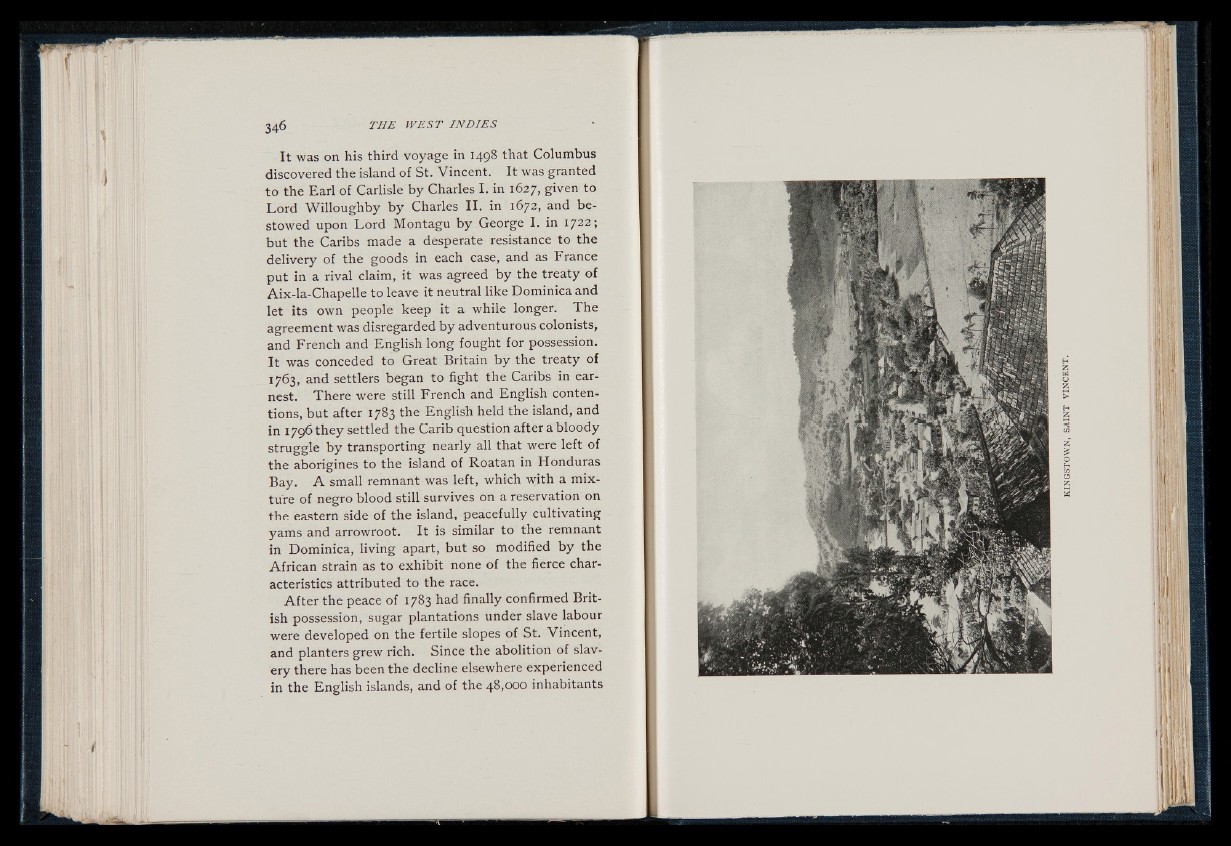
346 THE WEST IN D IE S
It was on his third voyage in 1498 that Columbus
discovered the island of St. Vincent. It was granted
to the Earl of Carlisle by Charles I. in 1627, given to
Lord Willoughby by Charles II. in 1672, and bestowed
upon Lord Montagu by George I. in 1722;
but the Caribs made a desperate resistance to the
delivery of the goods in each case, and as France
put in a rival claim, it was agreed by the treaty of
Aix-la-Chapelle to leave it neutral like Dominica and
let its own people keep it a while longer. The
agreement was disregarded by adventurous colonists,
and French and English long fought for possession.
I t was conceded to Great Britain by the treaty of
1763, and settlers began to fight the Caribs in earnest.
There were still French and English contentions,
but after 1783 the English held the island, and
in 1796 they settled the Carib question after a bloody
struggle by transporting nearly all that were left of
the aborigines to the island of Roatan in Honduras
Bay. A small remnant was left, which with a mixture
of negro blood still survives on a reservation on
the eastern side of the island, peacefully cultivating
yams and arrowroot. It is similar to the remnant
in Dominica, living apart, but so modified by the
African strain as to exhibit none of the fierce characteristics
attributed to the race.
A fte r the peace of 1783 had finally confirmed British
possession, sugar plantations under slave labour
were developed on the fertile slopes of St. Vincent,
and planters grew rich. Since the abolition of slavery
there has been the decline elsewhere experienced
in the English islands, and of the 48,000 inhabitants